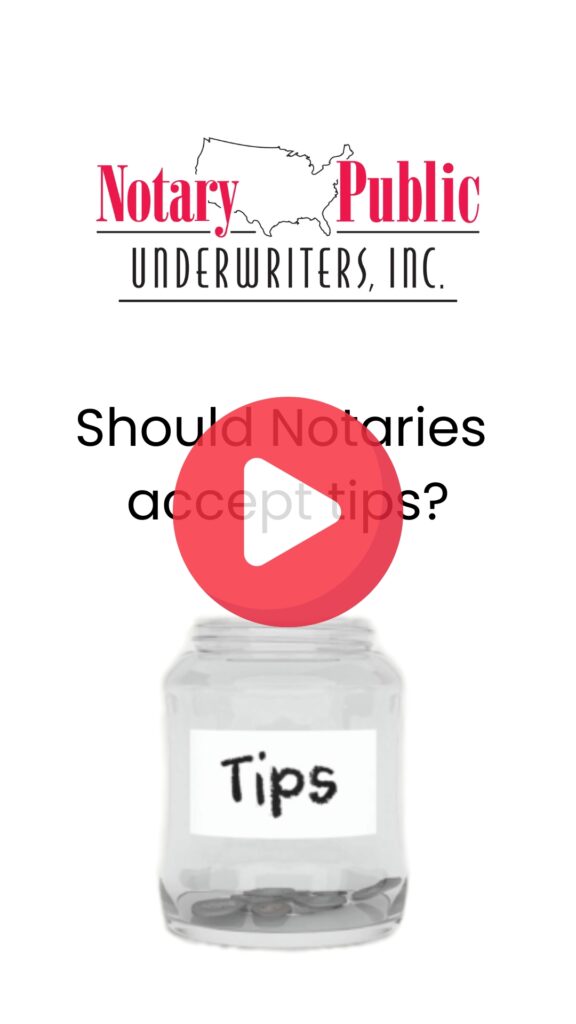Navigating the world of legal documents can sometimes feel overwhelming. When you need a notary public to witness your signature, it’s natural to wonder about proper etiquette, including whether tipping is expected. While not legally mandated, tipping a notary public is a common courtesy that acknowledges their service and professionalism. This guide will delve into the nuances of tipping notary publics, providing you with the knowledge to make informed decisions and ensure a respectful interaction.
This article will explore the customs surrounding tipping notary publics, discuss appropriate tip ranges, and outline factors that may influence your decision. We’ll also emphasize the importance of clear communication with your notary to ensure a smooth and positive experience for both parties.
Tipping Notary Public: Is It Required?
The short answer is no, tipping a notary public is not legally required. Notaries are compensated for their services through fees set by state regulations or individual businesses. However, tipping is widely considered a customary gesture of appreciation for their time, expertise, and assistance in completing important legal documents.
Think of tipping as a way to express gratitude for going above and beyond the basic requirements of their role. If a notary patiently explains complex procedures, offers helpful advice, or accommodates your schedule with flexibility, a tip can be a meaningful acknowledgment of their efforts.
Ultimately, the decision to tip rests on your personal discretion and assessment of the situation.
Notary Tip Etiquette and Customs
While tipping is not mandatory, there are certain etiquette guidelines to keep in mind when considering a tip for a notary public. First and foremost, always be polite and respectful throughout the interaction. Express your appreciation for their service verbally, even if you choose not to leave a monetary tip.
If you do decide to tip, it’s generally considered best practice to offer cash directly to the notary at the end of the signing process. Avoid leaving tips on counters or in designated tip jars, as this may be perceived as impersonal or awkward.
Typical Notary Tip Range
A common range for tipping a notary public is between $5 and $10. This amount reflects the average complexity of most notarial acts and serves as a reasonable gesture of appreciation.
However, you can adjust the tip amount based on several factors, such as the number of documents being notarized, the time required to complete the process, or any additional services provided by the notary.
Factors Affecting Notary Tips
Several factors can influence your decision regarding the tip amount for a notary public:
- Complexity of the Signing: If you have multiple documents requiring notarization or if the signing involves complex legal procedures, a higher tip may be appropriate.
Time Commitment: If the notary spends an extended period explaining procedures, answering questions, or accommodating your needs, a larger tip can show your appreciation for their time and effort.
Additional Services: If the notary goes above and beyond by providing extra services, such as photocopying documents or making travel arrangements, consider increasing the tip accordingly.
Communicating with Your Notary
Clear communication is essential for a positive experience with any professional service, including notaries public. Before the signing appointment, it’s helpful to:
- Confirm Fees: Inquire about the notary’s fee structure and any additional charges for specific services.
- Outline Requirements: Clearly explain the documents you need notarized and any special instructions or requests you may have.
By communicating openly and respectfully with your notary, you can ensure a smooth and efficient process while demonstrating your appreciation for their expertise.
Conclusion
Tipping a notary public is a customary gesture of appreciation for their service, though not legally required. While the decision to tip rests on your discretion, understanding the etiquette guidelines and factors influencing tip amounts can help you make an informed choice. Remember, clear communication with your notary throughout the process fosters a positive and respectful interaction.



